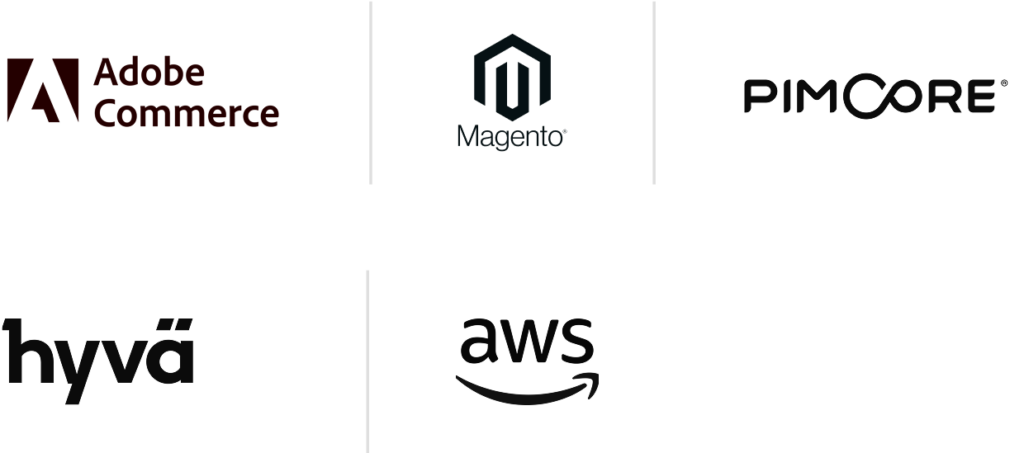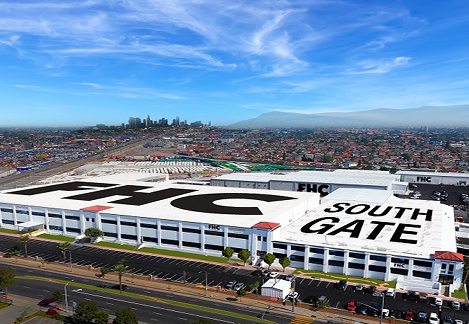ERP Integration
Adobe Commerce +
ERP Integration:
Zero-touch order routing
Automate 3 sync choke points in <30 days:
Contract Pricing
Instant Storefront Updates
Bulk Orders
ERP Processing Without CSV Hell
Returns/Cancellations
Auto-Inventory Reconciliation
Free sync health report with 3 priority fixes
Our partners
Platforms you trust. Results you’ve never seen.



Why ERP Integration Matters
Disconnected systems = lost B2B revenue!

Keep inventory & orders in sync
Ensure real-time stock updates and seamless order processing between ERP and eCommerce, preventing overselling and fulfillment delays.

Pricing & Discounts that match
Sync contract pricing, bulk discounts, and negotiated rates instantly to avoid disputes and abandoned carts.

Automated order processing
Eliminate manual data entry by ensuring every order, invoice, and fulfillment update flows between systems without delays.

Returns, cancellations & refunds
Instantly sync inventory, financials, and order status, so stock levels and records stay accurate across platforms.

Accurate data for smarter B2B
Keep shipping timelines, procurement updates, and stock availability aligned to prevent misleading delivery estimates.
Why ERP + Commerce Must Work Together
When ERP & Adobe Commerce don’t sync, growth stalls

The missing link between your storefront & backend
Disconnected systems lead to pricing errors, fulfillment delays, and inventory chaos—costing you customers and revenue. With Adobe Commerce’s robust APIs, we ensure your ERP and eCommerce store work together seamlessly, so every process is automated and accurate.
 ERP → Adobe Commerce: Accurate pricing & stock in real time
ERP → Adobe Commerce: Accurate pricing & stock in real time
Your ERP manages contract pricing, volume discounts, and stock levels. Without real-time updates to Adobe Commerce, buyers see outdated prices or unavailable inventory.
Our Solution: Instant ERP-to-eCommerce sync ensures every quote is accurate, every stock level is correct, and your buyers trust what they see.
 Adobe Commerce → ERP: Instant order visibility for fulfillment
Adobe Commerce → ERP: Instant order visibility for fulfillment
When orders don’t sync back to ERP immediately, stock levels remain inaccurate, and fulfillment teams are left in the dark.
Our Solution: Every order placed on Adobe Commerce reflects instantly in your ERP—keeping inventory updated and fulfillment teams ready to act.
 Two-Way sync for orders, returns & cancellations
Two-Way sync for orders, returns & cancellations
Canceled orders or returns can disrupt inventory and financial records if they don’t sync both ways.
Our Solution: We automate two-way data flow so cancellations update inventory instantly and returns are reconciled without manual intervention.
 Stop manually fixing errors—focus on scaling
Stop manually fixing errors—focus on scaling
Pricing mistakes, inventory mismatches, and order delays slow your team down with constant manual corrections.
Our Solution: We automate pricing updates, stock syncing, and order processing so your team can focus on growth—not firefighting.
What Adobe Commerce + ERP integration enables
Seamless automation for accuracy, efficiency, and growth.
 Orders that flow smoothly—from checkout to fulfillment
Orders that flow smoothly—from checkout to fulfillment
Every order placed online reflects instantly in ERP—updating inventory, triggering fulfillment processes, and ensuring contract pricing terms are applied correctly.
 Real-Time stock updates— every sale, every return
Real-Time stock updates— every sale, every return
When a product sells out or is returned online, your ERP updates stock levels instantly across all warehouses and channels to prevent overselling or delays.
 B2B pricing rules that stay in sync
B2B pricing rules that stay in sync
ERP manages customer-specific pricing contracts and volume discounts. With real-time sync to Adobe Commerce, buyers always see accurate rates—avoiding pricing disputes.
 Cancellations & refunds that instantly flow between systems
Cancellations & refunds that instantly flow between systems
Canceled or refunded orders automatically update in ERP—adjusting stock levels, financial records, and reconciliation processes without delays.

Make your ERP work seamlessly with eCommerce
Integration for leading ERP systems
Every ERP system has unique strengths, but without seamless integration with Adobe Commerce, bottlenecks can slow down your operations. Our tailored solutions ensure your ERP works flawlessly with Adobe Commerce, enabling accurate data flow, automation, and scalability.
Leading ERP systems for B2B commerce
Tiered & Custom Pricing
Enterprise-Grade Scalability
Microsoft Dynamics 365
Perfect for large enterprises managing complex pricing and inventory across multiple regions. Our integration connects Dynamics 365 directly to Adobe Commerce via APIs, enabling real-time stock updates, contract pricing automation, and bulk order processing.
Best For: Enterprises needing robust CRM integration alongside eCommerce operations.
Unique Advantage: Unified commerce experience combining sales, operations, and customer data.
NetSuite ERP
Built for Growing Businesses
NetSuite ERP
NetSuite is a cloud-based ERP that offers powerful financial management and inventory control. We integrate NetSuite with Adobe Commerce to automate workflows like multi-location inventory sync, order fulfillment, and financial reconciliation.
Best For: Mid-sized businesses scaling across regions.
Unique Advantage: Pre-built connectors for rapid deployment.
Epicor Eclipse
Optimized for Distribution
Epicor Eclipse
Designed for distributors handling bulk orders and tiered pricing. Our integration ensures live inventory sync between Epicor Eclipse and Adobe Commerce, reducing stockouts and overselling risks while automating distributor-level pricing updates.
Best For: Wholesale distributors managing high-volume orders.
Unique Advantage: Streamlined order fulfillment with multi-location inventory visibility.
SAP Business One
Comprehensive ERP for SMEs
SAP Business One
SAP Business One excels at procurement and financial management but requires customization for eCommerce connections. We synchronize SAP with Adobe Commerce to streamline multi-currency pricing updates, stock management, and financial transactions.
Best For: SMEs expanding into global markets.
Unique Advantage: Native integration with advanced analytics tools like SAP HANA.
Oracle ERP Cloud
Enterprise-Grade Flexibility
Oracle ERP Cloud
Oracle ERP Cloud is designed for large enterprises requiring advanced scalability and automation. We connect Oracle ERP Cloud to Adobe Commerce to enable real-time syncing of complex workflows like contract pricing, multi-channel inventory updates, and financial reporting.
Best For: Enterprises needing robust automation across global operations.
Unique Advantage: AI-driven insights for predictive analytics.
Acumatica
Cloud-Native Flexibility
Acumatica
Acumatica supports multi-channel eCommerce but needs custom connectors for real-time syncing. We automate Acumatica-to-Adobe Commerce workflows so orders, returns, and fulfillment updates are always aligned across channels
Best For: SMBs seeking cloud-based scalability.
Unique Advantage: Real-time data synchronization across sales categories and shipment tracking.
SAGE X3
Enterprise-Grade Scalability
SAGE X3
SAGE X3 handles complex manufacturing workflows but doesn’t natively align with eCommerce operations. Our integration ensures seamless data flow between production schedules, inventory updates, and Adobe Commerce storefronts—keeping your supply chain in sync.
Best For: Manufacturers needing precise production-to-order alignment.
Unique Advantage: Automated reconciliation of production data with eCommerce orders.
JD Edwards (Oracle)
Hybrid Deployment Flexibility
JD Edwards (Oracle)
JD Edwards offers flexible deployment options (cloud, on-premise, or hybrid) and is ideal for manufacturers and distributors managing complex supply chains. We integrate JD Edwards with Adobe Commerce to automate order processing, inventory management, and procurement workflows.
Best For: Enterprises requiring hybrid deployment flexibility.
Unique Advantage: Industry-specific solutions tailored to manufacturing or distribution needs.
Infor ERP
Industry-Specific Expertise
Infor ERP
Infor ERP is built for manufacturers and distributors needing deep industry functionality. Our integration ensures that Infor’s advanced planning tools sync seamlessly with Adobe Commerce—automating inventory updates, order processing, and delivery timelines.
Best For: Manufacturers scaling across multiple warehouses or regions.
Unique Advantage: Industry-specific modules tailored to manufacturing or distribution.
Case Studies
Get a close look at
how we’ve made a difference


Manufacturing
|
Magento 2.4.4 Compatibility
Optimized quoting and sales workflows through Salesforce, CPQ, and Duchess Integration, enabling faster, error-free quoting.
+88%
faster
quoting
100%
real-time
data sync


Manufacturing
|
Magento 2.4.4 Compatibility
Automated quoting and eliminated pricing errors through Epicor CPQ & Magento Integration, enabling seamless B2B eCommerce scaling.
+75%
faster
workflows
100%
real-time quoting
accuracy


Industrial Manufacturing
|
Akeneo PIM
Enhanced product management and B2B ordering with Akeneo PIM, million+ SKU imports, and a custom PO system for faster procurement.
+1 Million
SKUs managed effectively
Take the first step
Power your B2B commerce with the right ERP.

Resources
Stay ahead. Insights for your ecommerce growth.
FAQs
What is an ERP system?
An ERP system (Enterprise Resource Planning) is a business process automation tool that centralizes data across departments like finance, inventory, and sales. ERP software streamlines operations, enhances decision-making, and improves efficiency—making it essential for eCommerce and other industries. Key ERP system benefits include real-time insights and centralized business management.
What is Magento ERP integration?
Magento ERP integration connects your Magento store with an ERP for eCommerce, ensuring a seamless data sync for orders, inventory, and customer data. It enables real-time inventory updates, automates order processing, and minimizes manual errors—leading to improved efficiency and accuracy in operations.
How does ERP improve inventory management?
ERP inventory management optimizes stock levels, reduces waste, and prevents stockouts through demand forecasting and automated tracking. Integrated with a warehouse management system, ERP ensures real-time visibility across multiple locations, making inventory control more accurate and efficient.
What are the 5 components of ERP?
The five key components of an ERP system are finance & accounting, supply chain management (SCM), customer relationship management (CRM), human resources (HR), and manufacturing/operations. A robust ERP CRM SCM integration enables seamless workflows and enhances key ERP system features like automation and data centralization.
What is ERP vs CRM?
Enterprise resource planning (ERP) focuses on managing overall business operations—finance, inventory, and supply chain—while CRM (Customer Relationship Management) handles sales, marketing, and customer interactions. Businesses benefit from ERP and CRM integration, ensuring a unified business management software that enhances efficiency and streamlines processes. The key difference between ERP and CRM is that ERP optimizes internal operations, while CRM improves customer relationships.
Microsoft Dynamics 365
Perfect for large enterprises managing complex pricing and inventory across multiple regions. Our integration connects Dynamics 365 directly to Adobe Commerce via APIs, enabling real-time stock updates, contract pricing automation, and bulk order processing.
Best For: Enterprises needing robust CRM integration alongside eCommerce operations.
Unique Advantage: Unified commerce experience combining sales, operations, and customer data.




